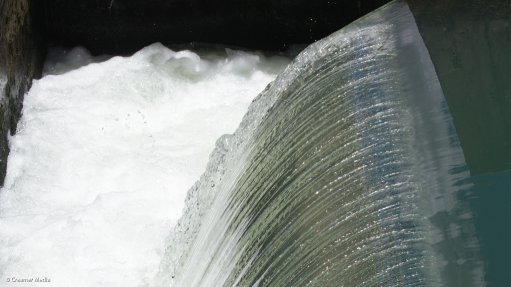
Photo by: Duane Daws
Water is now a key economic business risk discussed in boardrooms‚ rather than the “green issue” it has been categorised as previously‚ said Dr Inga Jacobs of the Water Research Commission (WRC).
“For the first time‚ water tops the charts for the highest global risk in terms of devastation‚ ahead of nuclear war or a global pandemic‚” she said.
Water also drove crucial aspects of energy generation in South Africa.
Jacobs was speaking at the Emerging Frontiers for Sustainable Water trilateral conference between South Africa‚ India and the UK‚ hosted by the University of Johannesburg (UJ).
“In South Africa‚ we are dealing with quite a severe physical scarcity of water‚ but also an increasingly severe economic scarcity of water.”
Looking at countries with good economic water security‚ she said‚ several trends stood out.
“In those countries there is a robust‚ well-maintained water infrastructure. Water secure countries also tend to have smart‚ responsible water users. An example is Singapore‚ where if you visit‚ people appear to function as if they are living in a permanent drought.
“These countries tend to have sustained pools of highly-talented people managing and maintaining their water systems and national systems of innovation. They invest significantly in knowledge-based solutions and good partnerships with academia and research entities‚” she said.
“This is why the WRC is now also considering funding late-stage research which requires substantial funding to take to market or to be included in government policy.
“One of our big initiatives is with Eskom‚ where we have identified a basket of water-energy projects being implemented or researched‚” said Jacobs.
The water-energy nexus becomes even more significant in the face of increasing urbanisation and population growth on a continent facing regional desertification.
“There are more than 1.2 billion people on the African continent today. In about 85 years‚ we can expect to have closer to two billion people in Africa‚” said Prof Tshilidzi Marwala‚ UJ deputy vice-chancellor: research.
“How are we going to supply clean and safe water and sanitation to all these people? Studies show that South Africa will become dryer in the next 30 years and that we lose close to 30% of our water in distribution systems. Meanwhile we depend on water from an independent country‚ Lesotho.
“The effective utilisation of water resources‚ as well as efficient management and reducing waste is at the centre of the economy and politics of South Africa. No development can succeed without water.”
New approaches would be needed to confront these challenges‚ said Prof Catherine Ngila‚ head of the UJ department of applied chemistry.
“The issues we face are partly due to water pollution from increased activity in the agriculture‚ mining‚ manufacturing‚ pharmaceuticals and petroleum industries. These industries supply the demands of an increasing population.
“There is a growing need for developing and adopting new technologies to test and treat contaminated water and recycle waste water in an affordable manner.”